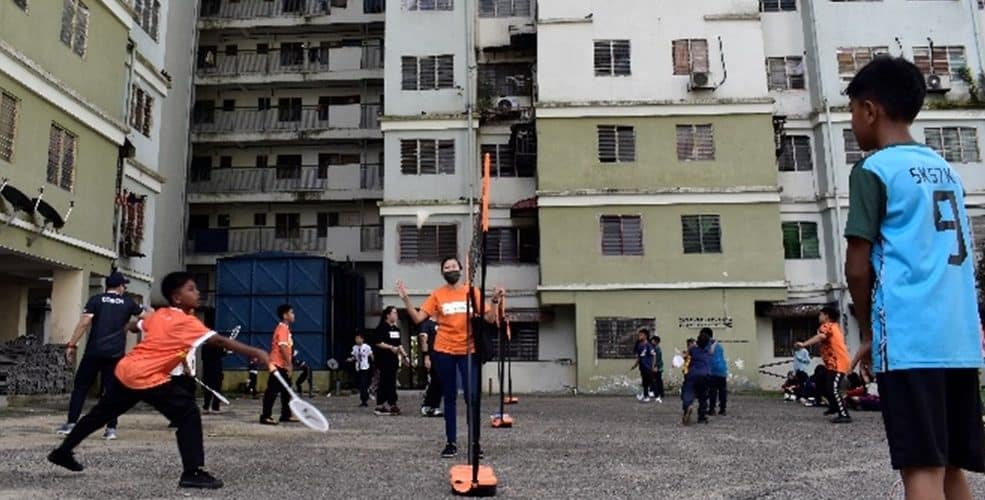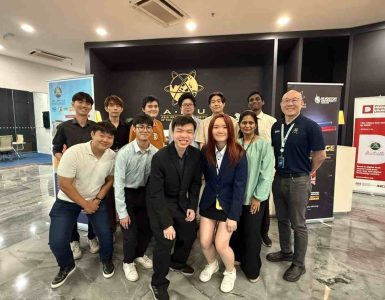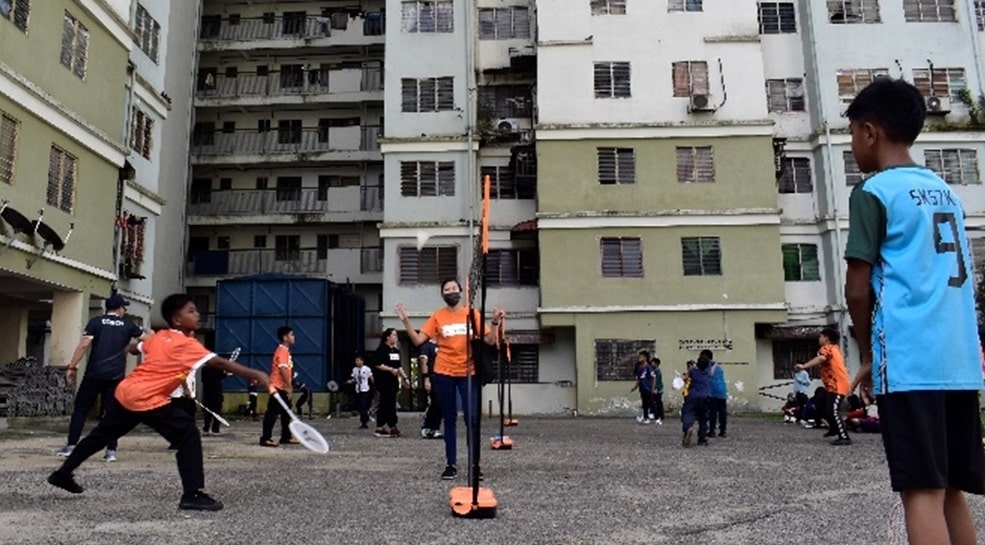
Living in a city often implies having better access to amenities, services, and opportunities. The advantages are accentuated and promoted, yet every city has a dark side, and Malaysian cities are no exception. In a society where not everyone is equal, the urban poor, particularly children of the urban poor, bear the weight of that inequality.
Urban poor children often face significant challenges all of which are inter-linked in their outcome. Paramount is their lack of access to healthy nutrition and exercise which can lead to malnutrition and a host of health problems.
Recognising this, child-focused NGO, World Vision Malaysia, initiated its One Goal Malaysia movement to empower urban poor children in Malaysia to eat right, play right and live right by leveraging on their love of sports.
The “Eat Right to Play Right” (ERTPR) programme is aimed at promoting healthy eating habits and physical activities among urban B40 families with special focus on children.
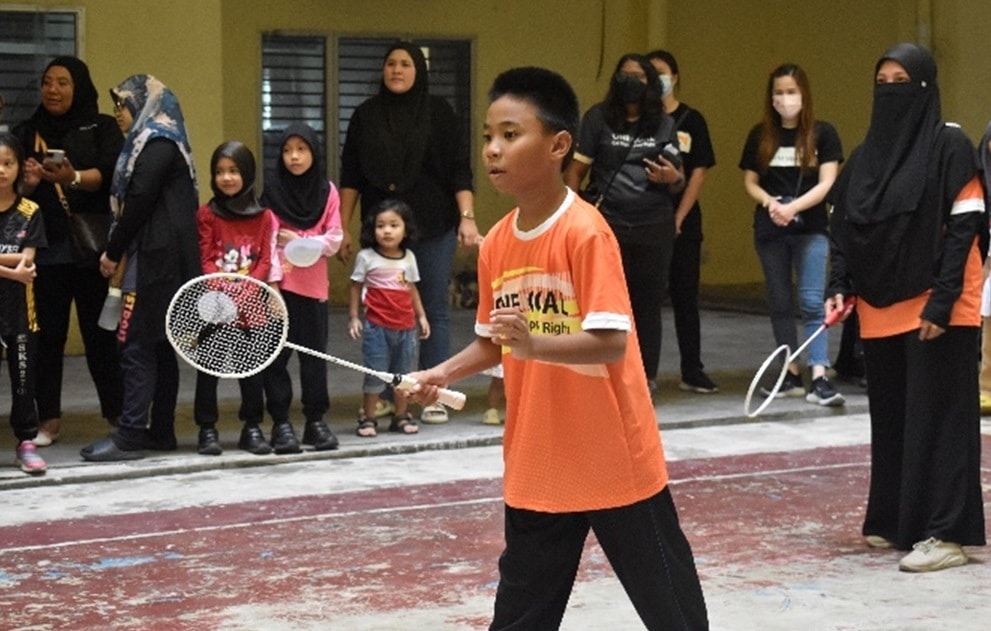
Lydia Lee, Malaysian Programmes and Grants Manager of World Vision Malaysia (WVM) said, “Many low-income families have limited access to fresh produce and other healthy foods.
“The constant need to eke a livelihood for parents to meet basic needs and increased food prices also mean shifting dietary habits towards more energy dense and highly processed food which are often cheaper, have longer shelf life and are more convenient compared with fresh and nutrient dense food. This results in rising overweight and obesity rates. At the same time, undernutrition persists as children are not eating enough of the right food.
“The ERTPR programme help parents and children in the targeted communities to understand the importance of nutrition and play regardless their circumstances, and to put the knowledge gained into practice.”
Eat Right to Play Right
WVM signed up children between the ages of seven to 12 from selected PPR communities in Klang Valley where they can play badminton and learn about the importance of nutritious food if they want to be good at play. “The whole idea is for them to learn in a fun and active environment. This makes it easier for them to relate to, and retain the knowledge learned,” added Lee.
The nutrition lessons are as basic as the importance of drinking enough water and having regular balanced meals.
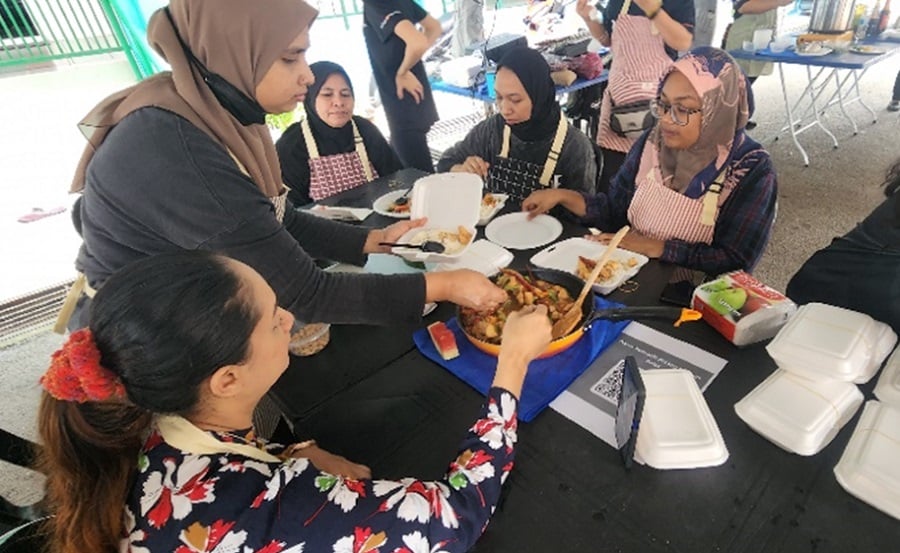
The ERTPR programme provides Community Kitchen lessons for parents in order to equip them with the knowledge and skills necessary to prepare nutritious meals for their children. ERTPR aims for 15 to 20 participants per community kitchen session
“We also do not use costly food items in the sessions as these will not be suitable or sustainable for the communities in the long run. As such, the cost is still considered manageable and not a major challenge,” explained Lee.
WVM has also added the component of urban garden as an optional activity. The aim of urban garden is to supplement food source for the family and help reduce expenses for food.
Lee elaborated that, typically, WVM will stay in a community for 1.5 years, including post-programme follow up and monitoring.
“Before moving on, we would have completed 12 modules of nutrition sessions with children and four to six community kitchen sessions with parents and an evaluation of the progress made,” she clarified.
Lee explained that WVM hopes for two outcomes for its ERTPR – children to have improved nutritional health through healthy eating and active lifestyle, and their home food environment is improved.
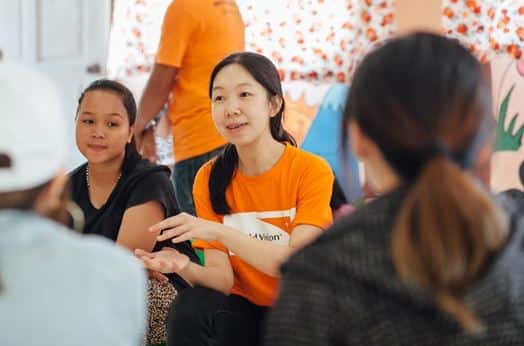
One Goal Malaysia
As a baseline, WVM discovered from a sample size of 55 children in one PPR, 20% of the children were underweight while 29.1% were overweight.
Currently, 134 children from three PPR communities (Lembah Subang 2, Kota Damansara, and Kg Baru HICOM) are participating in the programme. WVM’s goal is to reach out to at least 10 PPR communities within Selangor over the next three years. This would benefit approximately 450-500 children.
“We have received requests from other NGOs for training. We see potential in scaling this programme to more vulnerable communities, not just in Klang Valley but across Malaysia.
“In terms of the physical activities, we would probably adjust according to location. Football is suitable in rural communities while badminton is a hit in urban areas as space is more limited. We are open to explore other popular and accessible sports as well as if opportunities for collaboration arise,” revealed Lee.
World Vision Malaysia’s One Goal Movement is supported by donations made towards World Vision’s Malaysia Assistance Fund. “Donations are needed and welcome. I hope Malaysians will come forth to lend other fellow Malaysians a helping hand,” commented Lee.
For more information on WVM’s ERTPR programme, log on to worldvision.com.my/en/what-we-do/advocacy/one-goal-malaysia


